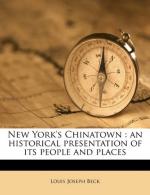|
This section contains 642 words (approx. 3 pages at 300 words per page) |

|
Financial Problems. Heavy financial burdens forced the Song (960-1279) government to reduce the salaries of its functionaries. Inadequate salaries may have contributed to corruption among the bureaucrats and factionalism in the government. The bureaucratic factions were deeply divided on all major issues of policy, which severely affected the efficiency of the governing machine. The young emperor Shengzong (Inspired Ancestor), who reigned from 1067 to 1085, came to the throne determined to tackle these financial problems. In 1067 he appointed Wang Anshi as his chief councilor, who initiated a series of economic, military, and educational reforms.
Reforms. On the economic front, Wang Anshi first installed the central economic manipulation policy, which had been known in the Han dynasty (206 B.C.E.-220 C.E.) as the "leveling" system. Under this policy the government bought specialized products from one region and...
|
This section contains 642 words (approx. 3 pages at 300 words per page) |

|




